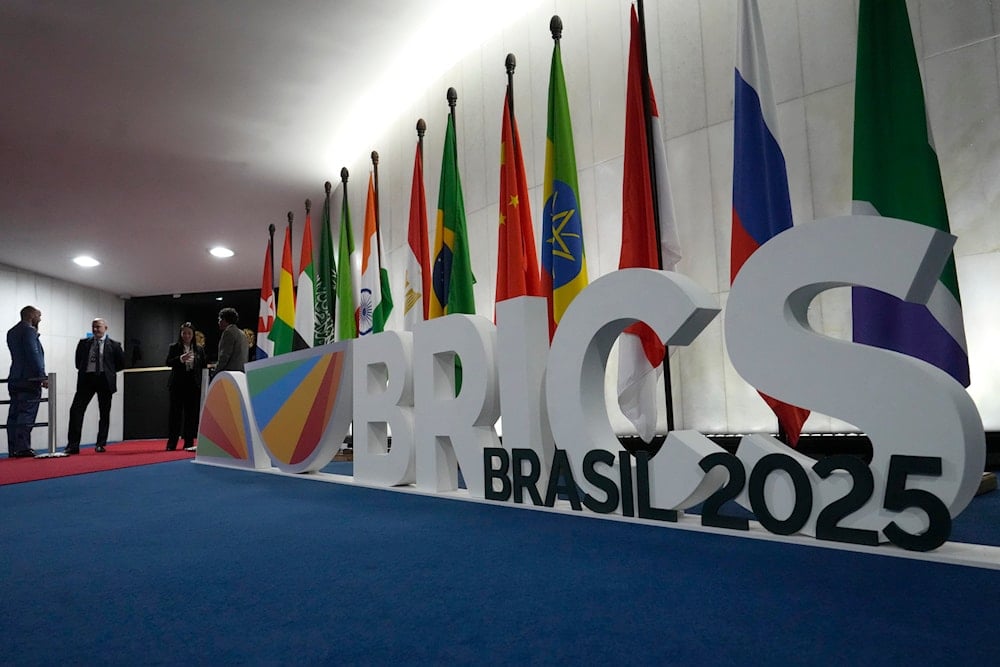BRICS plans guarantee fund to boost member investments
The BRICS group is set to establish a Multilateral Guarantee Fund to attract private investment and reduce financing costs.
-

A sign announcing the 11th BRICS Parliamentary Forum stands at the entrance to the Federal Senate in Brasilia, Brazil, Wednesday, June 4, 2025. (AP)
The BRICS group, which consists of some of the world's fastest-growing emerging economies, is set to establish a guarantee fund aimed at boosting investment across its member states and reducing financing costs, according to a Reuters report on Thursday citing sources knowledgeable in the matter.
The fund, supported by the New Development Bank, is designed to mirror the structure and objectives of the World Bank's Multilateral Investment Guarantee Agency (MIGA), to respond to changes in global investment patterns driven by shifts in US economic policy.
According to one of the sources, the BRICS Multilateral Guarantee (BMG) mechanism, which has already secured technical approval from member states, is now awaiting final endorsement from the finance ministers of the BRICS nations.
While the exact initial funding amount remains undisclosed, the New Development Bank anticipates leveraging each dollar of guarantees issued under the BRICS initiative to attract between $5 and $10 in private capital for pre-approved projects.
According to the report, technical groundwork for establishing the fund is projected to be completed by late 2025, paving the way for the first pilot projects to potentially secure guarantees as early as 2026.
This comes as BRICS heads towards its 17th summit in Rio de Janeiro, Brazil, marking a major expansion in the newly formed alliance that signals a shift in global power.
BRICS next summit marks a significant shift: Foreign Policy
In 2024, the founding BRICS nations of Brazil, Russia, India, China, and South Africa were joined by five new members: Egypt, Ethiopia, Indonesia, Iran, and the United Arab Emirates. This expanded grouping now represents approximately 40% of global GDP when measured by purchasing power parity, which exceeds the G7 nations' collective 30% share of world economic output.
Foreign Policy reported that the participation of Southeast Asian nations at that year's BRICS summit marked a significant shift, as the region had previously maintained a relatively distant stance toward the bloc's initiatives but began demonstrating growing engagement, with Indonesia having joined as a full member in January while Malaysia, Thailand and Vietnam had agreed to participate as partner countries.
Their increasing engagement signaled a fundamental transformation in the bloc's standing, evolving from what began as a loose consultative forum into a more institutionalized and appealing multilateral organization.

 3 Min Read
3 Min Read








